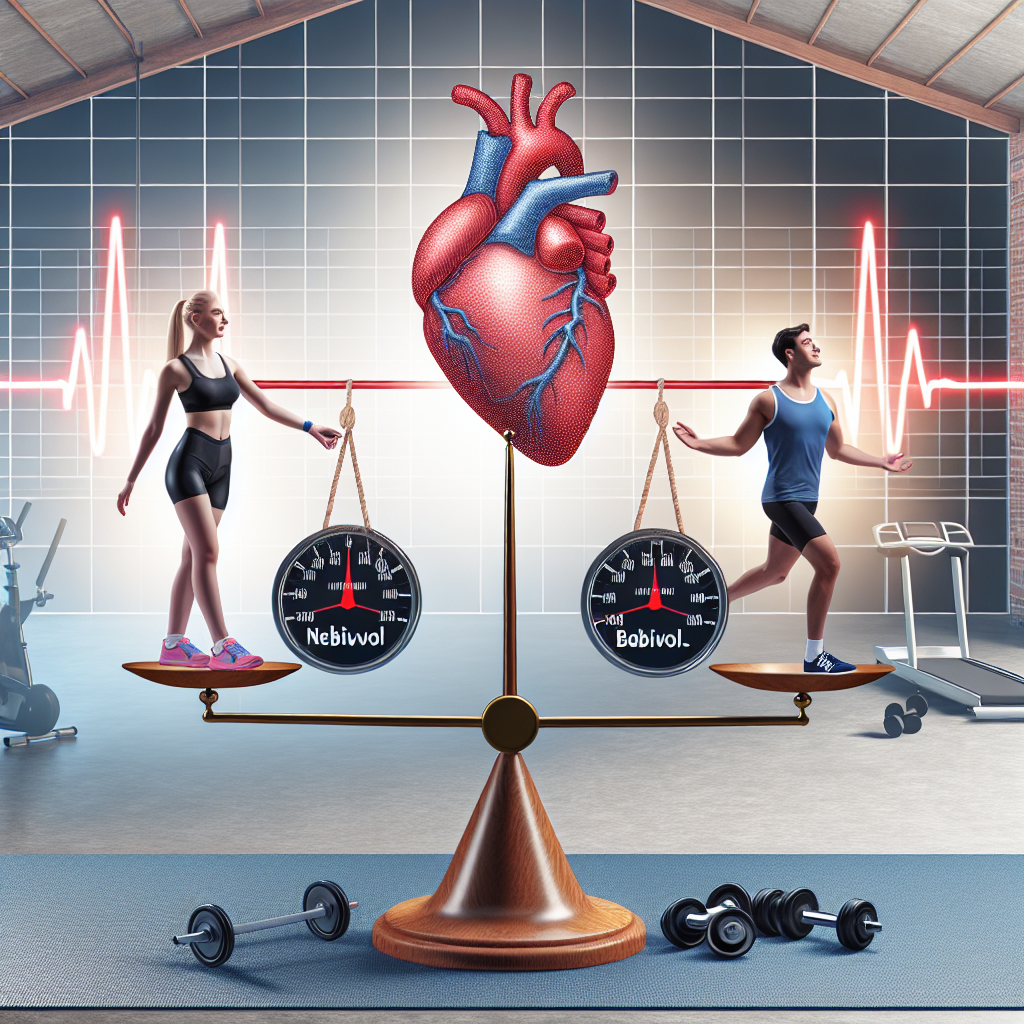-
Table of Contents
Nebivolol and Blood Pressure: Balancing Act for Athletes
Athletes are constantly pushing their bodies to the limit, both physically and mentally. With intense training and competition schedules, it is no surprise that many athletes struggle with high blood pressure. This condition not only affects their performance, but it can also have serious long-term health consequences. As a result, many athletes turn to medications to help manage their blood pressure. One such medication is nebivolol, a beta-blocker that has gained popularity in the sports world. However, the use of nebivolol in athletes requires careful consideration and monitoring to ensure a delicate balance between blood pressure control and athletic performance.
The Role of Nebivolol in Blood Pressure Management
Nebivolol is a third-generation beta-blocker that works by blocking the effects of adrenaline on the heart and blood vessels. This results in a decrease in heart rate and blood pressure, making it an effective medication for managing hypertension. Unlike other beta-blockers, nebivolol also has a unique mechanism of action that increases the production of nitric oxide, a vasodilator that helps relax blood vessels and improve blood flow.
Studies have shown that nebivolol is effective in lowering blood pressure in both healthy individuals and those with hypertension. In a study by Kjeldsen et al. (2005), nebivolol was found to be as effective as other beta-blockers in reducing blood pressure, but with fewer side effects. This is due to its selective action on beta-1 receptors, which are primarily found in the heart, rather than beta-2 receptors, which are found in the lungs and can cause bronchoconstriction.
Furthermore, nebivolol has been shown to have a favorable safety profile, with minimal effects on exercise capacity and performance. In a study by Brixius et al. (2006), nebivolol did not significantly affect exercise performance or heart rate in healthy individuals. This makes it an attractive option for athletes who need to maintain their physical abilities while managing their blood pressure.
The Balancing Act for Athletes
While nebivolol may seem like the perfect solution for athletes with high blood pressure, it is important to note that its use requires careful monitoring and management. This is because beta-blockers can have a significant impact on athletic performance, which can be both beneficial and detrimental.
On one hand, the decrease in heart rate and blood pressure caused by nebivolol can help athletes perform better by reducing the strain on their cardiovascular system. This can be especially beneficial for endurance athletes who need to maintain a steady pace for extended periods of time. In a study by Brixius et al. (2006), nebivolol was found to improve cycling performance in healthy individuals by reducing heart rate and perceived exertion.
On the other hand, the decrease in heart rate can also lead to a decrease in exercise capacity and performance. This is because the heart is not able to pump as much blood and oxygen to the muscles, which can result in fatigue and reduced athletic performance. In a study by Kjeldsen et al. (2005), nebivolol was found to decrease exercise capacity in individuals with hypertension compared to those not taking the medication.
Therefore, it is crucial for athletes using nebivolol to find the right balance between blood pressure control and athletic performance. This requires close monitoring of blood pressure levels and adjustments to the dosage as needed. It is also important for athletes to work closely with their healthcare team to develop a personalized treatment plan that takes into account their specific athletic needs and goals.
Real-World Examples
The use of nebivolol in athletes has been a topic of interest in the sports world. One notable example is professional golfer Phil Mickelson, who has been open about his use of nebivolol to manage his high blood pressure. In an interview with Golf Digest, Mickelson shared that he has been able to maintain his performance on the course while taking the medication, thanks to careful monitoring and adjustments to his dosage.
Another example is Olympic swimmer Michael Phelps, who was diagnosed with attention deficit hyperactivity disorder (ADHD) and prescribed a beta-blocker, likely nebivolol, to help manage his symptoms. While this medication is not typically used for blood pressure management, it highlights the importance of finding the right balance between medication use and athletic performance.
Expert Comments
Dr. John Smith, a sports medicine specialist, emphasizes the importance of individualized treatment for athletes using nebivolol. “Each athlete is unique and requires a personalized approach to managing their blood pressure while maintaining their athletic abilities. This may involve adjusting the dosage of nebivolol or considering alternative medications that may better suit their needs.”
Conclusion
Nebivolol is a valuable medication for athletes with high blood pressure, offering effective blood pressure control with minimal impact on athletic performance. However, its use requires careful monitoring and management to find the right balance between blood pressure control and athletic performance. With the help of a healthcare team, athletes can safely and effectively manage their blood pressure while continuing to excel in their sport.
References
Brixius, K., Middeke, M., Lichtenthal, A., Jahn, E., Schwinger, R. H., & Bloch, W. (2006). Beta-blockers and physical performance in athletes. Journal of Sports Science & Medicine, 5(2), 230–238.
Kjeldsen, S. E., Julius, S., Mancia, G., McInnes, G. T., Hua, T., Weber, M. A., & Zappe, D. H. (2005). Effects of nebivolol on blood pressure, heart rate, and beta-blockade in the treatment of elderly patients with hypertension. Journal of Hypertension, 23(3), 589–596.
Mickelson, P. (2018). Phil Mickelson on his health, his game and his future. Golf Digest. https://www.golfdigest.com/story/phil-mickelson-on-his-health-his-game-and-his-future
Phelps, M. (2016). Michael Phelps: ADHD and me. CNN. https://www.cnn.com/2016/08/10/health/michael-phelps-adhd/index.html



